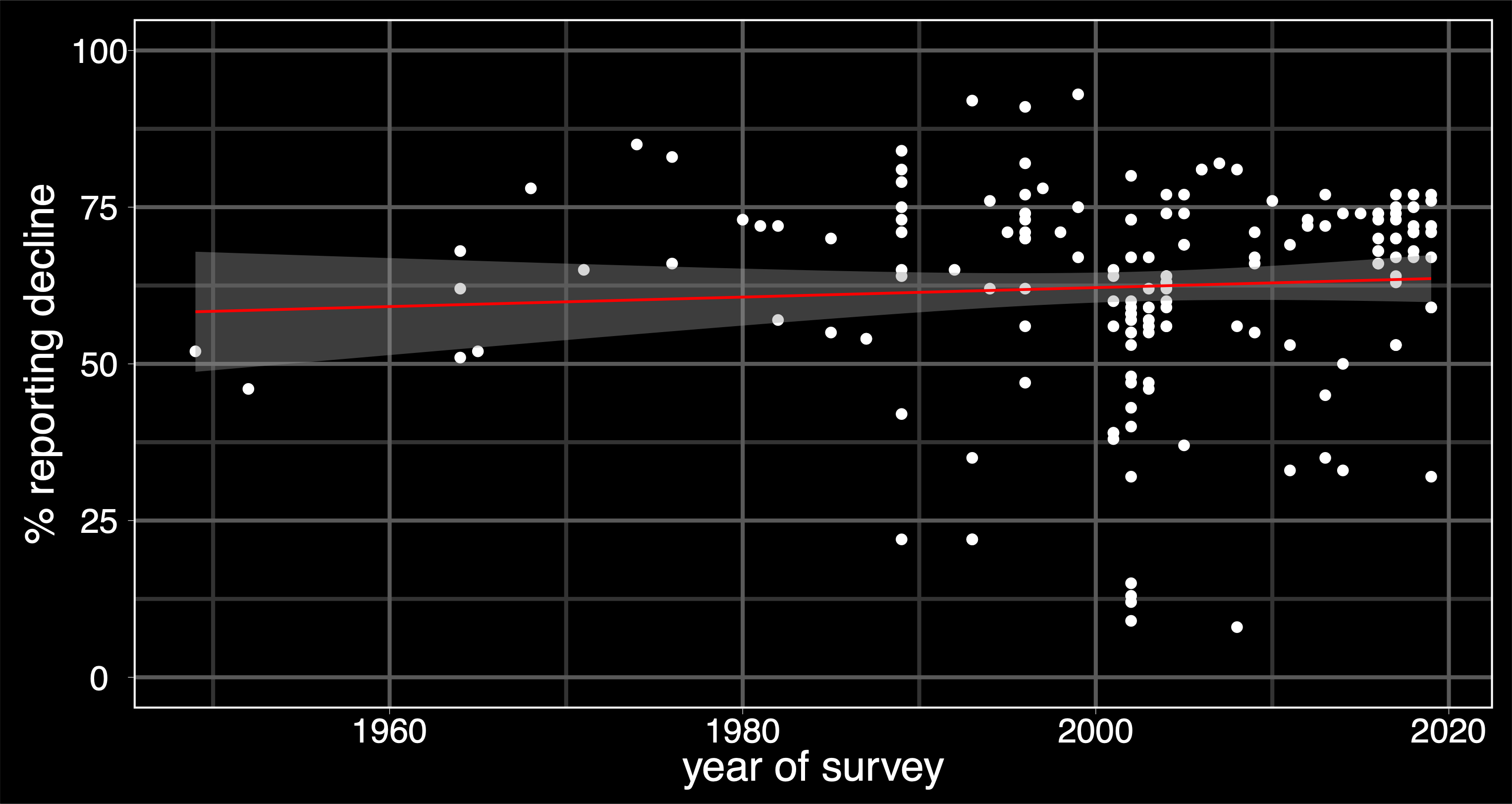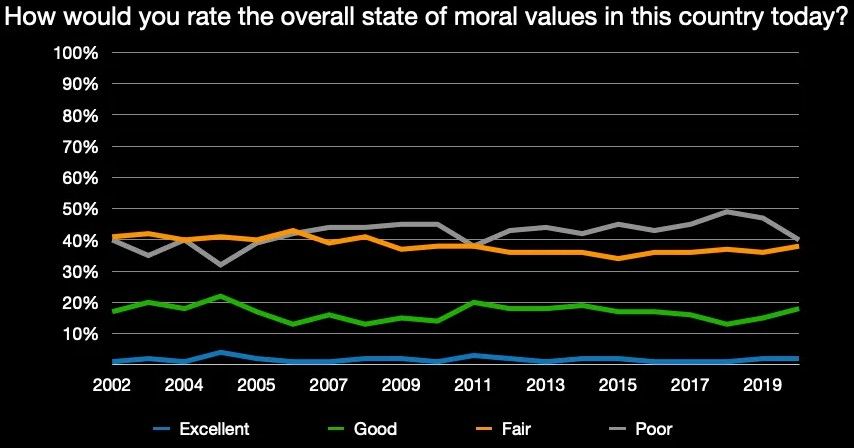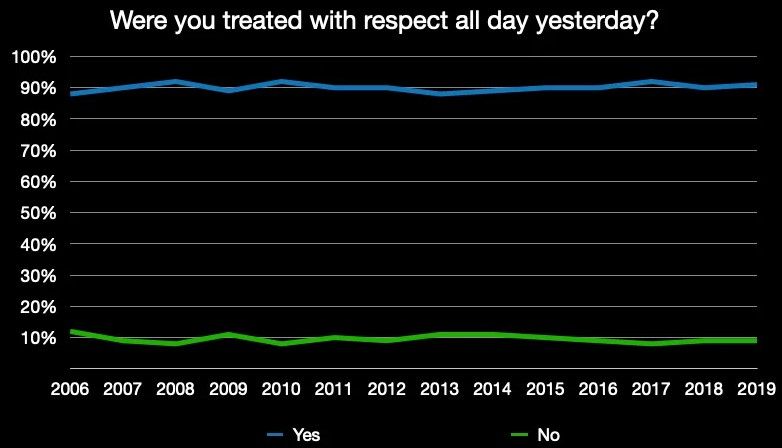
🧭 New study: Morality not in decline
Most people believe morality is on the decline. But data shows no change in everyday morality over several decades. It might even be the opposite.
Share this story!
- Surveys reveal that a majority of people believe morality is on the decline globally
- Despite perceptions, data shows no significant change in everyday morality over the decades
- Cooperation rates in economic games have increased, contradicting the notion of moral decline
A new study, published in Nature, has looked into the case of moral decline.
Are we in a moral decline? The majority thinks so
Across the globe, people seem to think morality is on a downward slope. After an in-depth analysis of 177 surveys involving over 220,772 participants, it was found that 84 percent believe morality has declined.
This perception remains consistent, regardless of whether individuals were asked about changes in the last year or over 50 years.
The sense of moral decline is a worldwide phenomenon, appearing consistently in surveys from 59 countries.

Perception versus reality: Has morality truly dipped?
While the consensus might suggest a dwindling sense of morality, the evidence points elsewhere. One might expect a moral decline to be accompanied by an increase in acts of violence or disrespect, yet historical data suggest that acts of severe immorality, such as war, murder, and slavery, have decreased over time.
The perception of moral decline often aligns with sentiments of diminished respect or lack of time for each other. To determine if everyday morality has indeed taken a downturn, surveys asking about daily experiences of respect, helpfulness, and altruism were examined.
Everyday morality remains stable, data shows
Analysis of 107 surveys conducted from 1965 to 2020 involving over 4.4 million people indicates that responses to questions about everyday morality have remained remarkably stable.
No significant changes were identified, with slight upward or downward trends averaging out to no overall movement.

Furthermore, similar studies conducted outside of the US involving over 7.3 million participants echoed these findings.
Despite yearly claims of morality worsening, the data consistently shows no significant change in everyday moral actions.

Cooperation in economic games on the rise
To better understand these trends, economists turn to games, like the Prisoner’s Dilemma and the Public Goods Game.
A team led by Mingliang Yuan analyzed these games' historical data and found that cooperation rates have increased by approximately 10 percentage points from 1956 to 2017.
Contrary to the popular belief of dwindling morality, these games show an increased willingness to cooperate over time.
Conclusion: The perception of moral decline is an illusion
Even when provided with clear information about increasing cooperation rates, participants predicted a decrease, reinforcing the notion of moral decline.
However, consistent data from diverse sources underscores the resilience of everyday morality, suggesting the perception of moral decline is indeed an illusion.
Fore more, check out this blog post by one of the study's authors.

And here you'll find the paper:

By becoming a premium supporter, you help in the creation and sharing of fact-based optimistic news all over the world.




